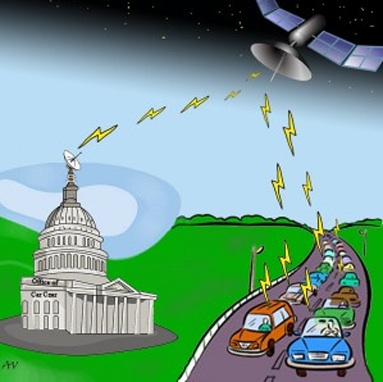Perry scrubs Trans-Texas Corridor from his bio as primary battle looms
 Rick Perry's bio: Now you see it, now you don't
Rick Perry's bio: Now you see it, now you don't12/17/09
Wayne Slater
The Dallas Morning News
Copyright 2009
Something's missing from the Texas governor's official state website. Gone from Rick Perry's biography is any mention of the Trans-Texas Corridor, the beleaguered toll-road project the governor once touted as a crowning jewel accomplishment of his tenure in office. Scrubbed is the paragraph about how Perry expanded the children's health insurance program -- a popular program with Democrats but not so much with Republicans whose votes the governor wants in next year's GOP primary. And vanished is the previous mention of Perry building "a stronger safety net for the poorist of the poor." That's been replaced by a paragraph about stopping illegal immigration.
The changes on the official state website -- here's the old one, here's the new one -- come as Perry is stepping up his reelection campaign against rival Kay Bailey Hutchison.
UPDATE: Perry spokesman Allison Castle says the update was routine and not related to the campaign. She said children's health is mentioned elsewhere on the site as a priority (so is the Trans-Texas Corridor, if you search the archived press releases). But as part of the official bio? They're gone. Said Castle: "We updated the bio to emphasize accomplishments of the 81st legislative session."
Hutchison has been critical of Perry's Trans-Texas Corridor idea. Although popular with construction interests, the project ran afoul of landowners espousing property rights and other opponents of toll roads. The state's highway agency declared the project dead this year. As for CHIP -- the health insurance program for children of the working poor -- Perry opposed expansion of the program in the Legislature this year. Perry has preferred focusing on those already eligible, not easing the qualifications for new families.
Here's what the site used to say about children's health insurance:
"Starting with his election as lieutenant governor in 1999, Rick Perry has worked to build a stronger safety net for the poorist of the poor. The number of children with health insurance under Medicaid and CHIP has more than doubled since 1999. "
This paragraph has replaced it:
"Stepping into the gap left by the federal government, Governor Perry has worked with the Legislature to fund coordinated border security efforts to the tune of $110 million in each of hte last two sessions. Pursuing a 'boots on the ground' strategy, the approach of integrating and coordinating local, county, state and federal law enforcement efforts, this effort has decreased crime in key areas by more than 60 percent."
© 2009 Dallas Morning News: www.dallasnews.com
To search TTC News Archives click
To view the Trans-Texas Corridor Blog click








